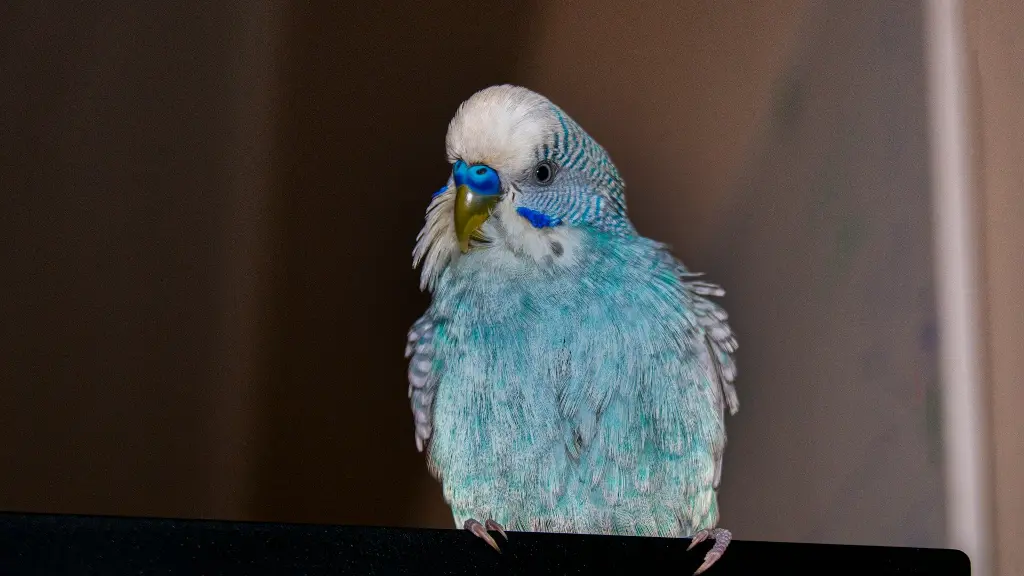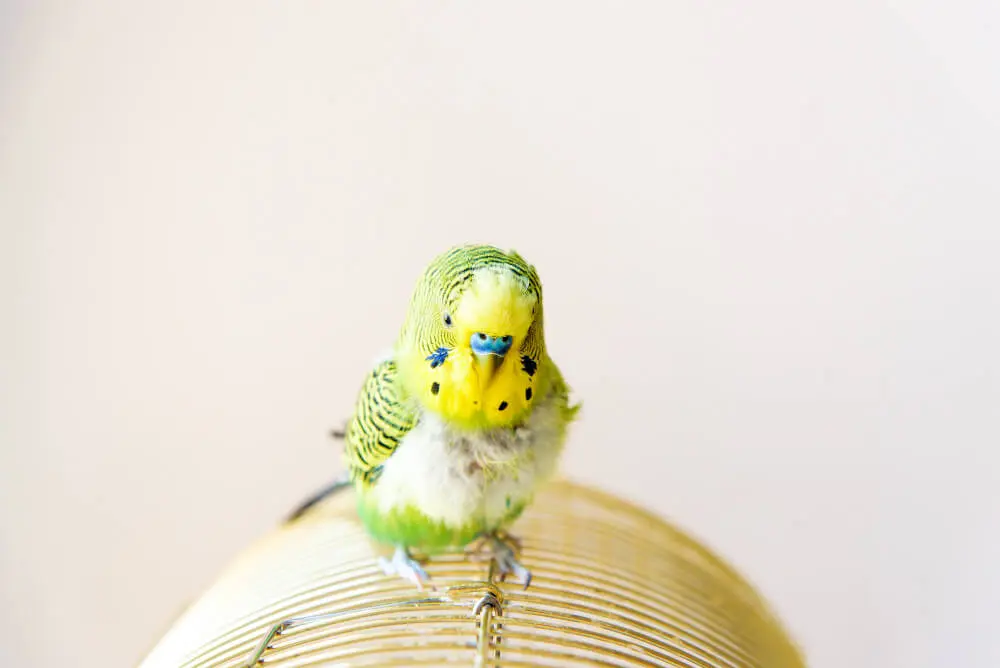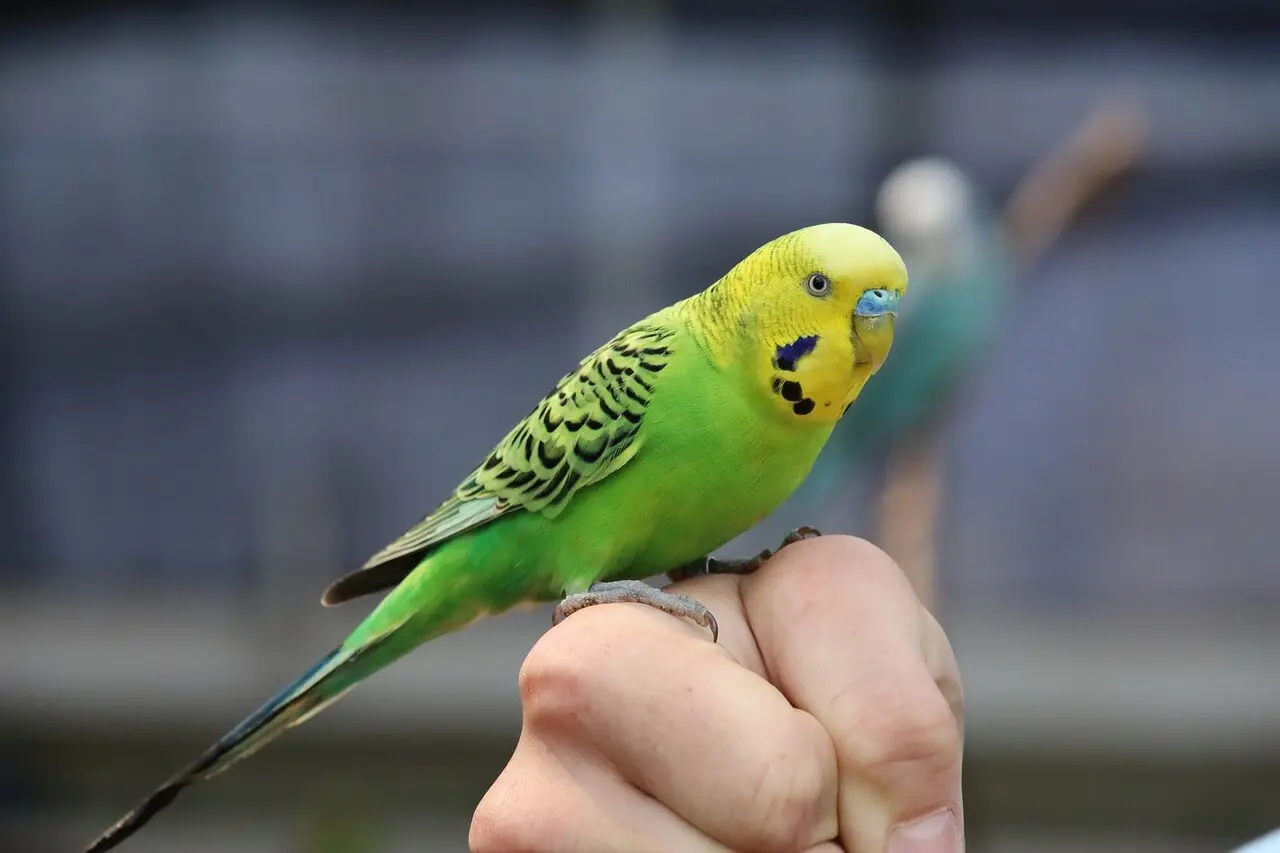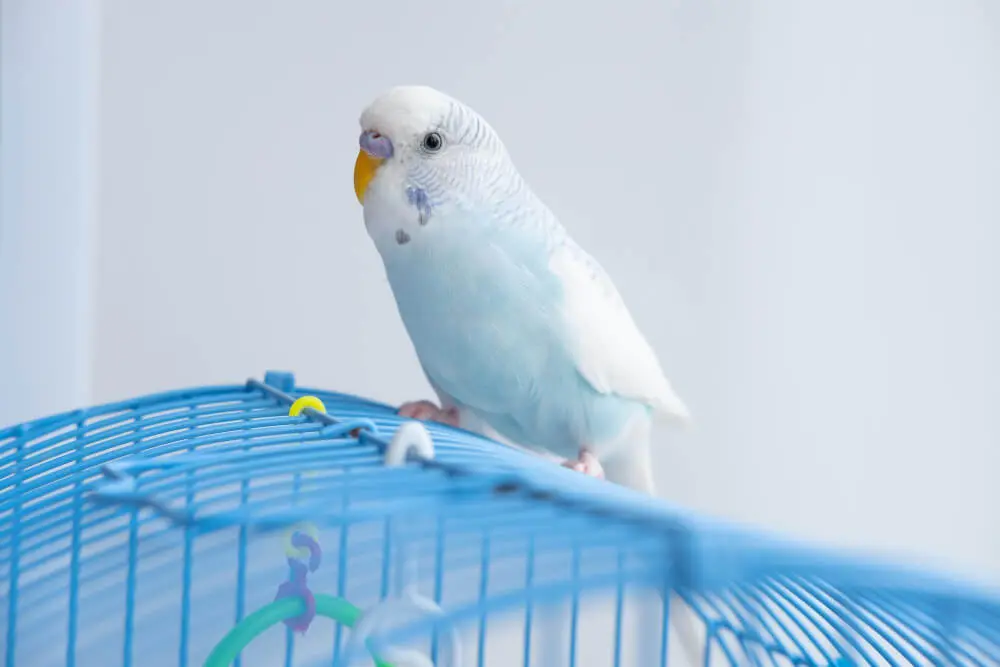Introduction
Budgerigars, often affectionately called budgies, are known for their playful personalities and cheerful chirping. However, like all pets, they can experience stress, which can significantly impact their well-being. Understanding budgerigar stress is crucial for any bird owner who wants to ensure their feathered friend remains healthy and happy.
Stress in budgerigars can manifest in various ways, from changes in behavior to physical symptoms that are often subtle but important to recognize. Knowing how to identify and treat budgie stress is key to preventing long-term health issues and ensuring your bird lives a fulfilling life.
In this guide, we’ll explore what causes stress in budgies, how to spot the early signs, and most importantly, effective ways to calm a stressed budgie. Whether you’re dealing with a nervous budgie or just want to prevent stress from affecting your pet, these tips will help you create a safe and nurturing environment for your budgerigar.
What is Budgerigar Stress?
Budgerigar stress is a state of physical or emotional tension that occurs when your budgie feels threatened, uncomfortable, or overwhelmed. Just like humans, budgies can experience stress from changes in their environment, routine disruptions, or even a lack of mental stimulation. Recognizing budgie stress is essential because prolonged stress can lead to serious health problems, including weakened immune systems and behavioral issues.
Stress in budgerigars can be triggered by a variety of factors. A new cage, unfamiliar noises, or even the introduction of a new pet can cause your budgie to feel anxious. It’s important to understand that what may seem like a minor change to us can be a significant source of stress for these small birds.
When a budgie is stressed, you might notice changes in its behavior, such as excessive biting, feather plucking, or unusual vocalizations. These are signs that your budgie is not just having a bad day, but is actually dealing with stress that needs to be addressed.
By understanding the causes and symptoms of budgie stress, you can take steps to reduce it and ensure your bird remains happy and healthy. Creating a calm and stable environment, providing proper nutrition, and engaging in regular social interaction are just a few ways to manage and prevent stress in your budgerigar.
Common Causes of Budgerigar Stress
Understanding what causes budgerigar stress is the first step in preventing it. While budgies are resilient and adaptable, they are also sensitive creatures that can be easily stressed by certain situations and changes in their environment.
One of the most common causes of stress in budgerigars is environmental changes. Moving to a new home, rearranging the cage, or even a change in lighting can make your budgie feel uneasy. These birds thrive on routine, and any disruption can lead to anxiety.
Another significant stress factor is lack of mental and physical stimulation. Budgies are intelligent and curious birds that need regular engagement. Without toys, social interaction, or activities to keep them occupied, they can become bored and stressed. A bored budgie might start displaying signs of stress, such as feather plucking or excessive vocalization.

A blue budgerigar displaying fluffed-up feathers, a common sign of stress. Early detection of stress indicators in budgerigars is crucial for effective care.
Social isolation is also a major stressor for budgerigars. These birds are naturally social and thrive on companionship, whether it’s from other budgies or their human caretakers. A lonely budgie is more likely to experience stress, leading to behavioral problems and even health issues.
Noise and disturbances can also trigger stress in budgerigars. Loud sounds, unfamiliar voices, or even a TV left on at high volume can create a stressful environment for your bird. It’s important to remember that what seems normal to us can be overwhelming for a small bird.
Finally, health issues and improper diet can contribute to stress. If a budgie is feeling unwell or is not getting the right nutrients, it can easily become stressed. Regular health checks and a balanced diet are crucial to keeping your budgie stress-free.
By being aware of these common causes of budgie stress, you can take proactive steps to create a calm, engaging, and nurturing environment for your bird. This not only helps in reducing stress but also promotes a happy and healthy life for your budgerigar.
Signs and Symptoms of Budgerigar Stress
Recognizing the signs and symptoms of budgerigar stress is crucial for ensuring the well-being of your feathered friend. Budgies may not be able to tell you when they’re feeling stressed, but their behavior and physical condition can give you clear signals that something is wrong.
One of the most noticeable signs of budgerigar stress is feather plucking. If your budgie is pulling out its own feathers, it’s often a sign of extreme stress or boredom. This behavior can quickly escalate into a serious health issue if not addressed promptly.
Changes in vocalization are another indicator of stress. A normally chatty budgie might become unusually quiet, or a typically quiet bird might start screeching or making distressed sounds. These changes in noise levels often reflect discomfort or anxiety.
Altered eating habits can also signal stress in your budgerigar. If your budgie suddenly stops eating or shows a decrease in appetite, it may be feeling stressed. On the flip side, some stressed budgies might start overeating as a coping mechanism.
Aggressive behavior, such as biting or lunging, is a common stress response in budgies. If your usually gentle bird starts acting out aggressively, it could be trying to communicate that it feels threatened or uncomfortable.
Another symptom to watch for is frequent wing flapping or pacing in the cage. These restless behaviors often indicate that your budgie is anxious or bored. Similarly, if your budgie starts hiding more than usual, it may be trying to escape something it perceives as stressful.
Physical symptoms of stress in budgerigars include ruffled feathers, drooping wings, and a puffed-up appearance. These can be signs that your budgie is feeling unwell, and stress could be a contributing factor.

A green budgerigar showing feather plucking, a clear sign of stress. Identifying stress-related behaviors in budgerigars is vital for maintaining their health.
Lastly, sleep disturbances can be a key indicator of stress. A stressed budgie might have trouble sleeping or may start sleeping more during the day, which is not typical for healthy budgies.
By being attentive to these signs and symptoms, you can quickly identify when your budgie is under stress and take steps to alleviate it. Early recognition and intervention are vital to keeping your budgerigar healthy and happy.
How to Recognize Budgerigar Stress Early
Recognizing budgerigar stress early is essential for preventing long-term health issues and ensuring your bird stays happy. Early detection allows you to make necessary adjustments before stress takes a toll on your budgie’s well-being. Fortunately, there are subtle cues you can watch for to catch stress before it becomes a serious problem.
One of the first things to observe is your budgie’s behavioral patterns. Budgies are creatures of habit, so any sudden change in their routine could be a red flag. If your normally active and playful budgie starts spending more time sitting quietly or appears withdrawn, this could be an early sign of stress.
Body language is another key indicator. Pay close attention to how your budgie holds its feathers and wings. A stressed budgie might have its feathers slightly puffed up, or you may notice it frequently tucking its head under its wings. These are signs that your bird is not entirely comfortable.
Listening to your budgie’s vocalizations can also provide early clues. Budgies usually have a consistent pattern of chirping and singing throughout the day. If you notice a change in the frequency, tone, or volume of your budgie’s sounds, it may be experiencing stress. For example, a decrease in vocal activity could indicate anxiety or discomfort.
Monitoring eating habits is another way to spot stress early. If your budgie is eating less or seems uninterested in its favorite treats, it could be an early sign of stress. On the other hand, increased eating or frantic pecking at food might also signal that something is wrong.
Interactions with you and other birds can also reveal early signs of stress. If your budgie suddenly becomes more aggressive or starts avoiding social interactions, it could be feeling threatened or overwhelmed. Early changes in social behavior are often linked to environmental stressors or a disruption in routine.
Lastly, keep an eye on your budgie’s sleep patterns. Budgies typically sleep through the night and are active during the day. If your budgie is napping more than usual or seems restless at night, it may be experiencing early stress. Ensuring that your budgie has a quiet, dark place to sleep can help alleviate some of this stress.
By staying observant and aware of these early signs, you can intervene before stress escalates. Simple changes, like adjusting your budgie’s environment or routine, can make a big difference in keeping your feathered friend stress-free and content.
Effective Ways to Treat Budgerigar Stress
Treating budgerigar stress is crucial to ensuring your bird’s well-being and happiness. Once you’ve identified that your budgie is stressed, there are several effective strategies you can implement to help your feathered friend feel calm and secure again.
1. Create a Calm Environment
One of the most effective ways to treat budgerigar stress is to create a calm and stable environment. Start by minimizing loud noises and sudden movements around your budgie’s cage. Consider moving the cage to a quieter part of your home, away from high traffic areas. Providing a consistent routine with regular feeding, playtime, and sleep can also help your budgie feel more secure and less stressed.

A pair of budgerigars interacting with toys in their cage, an effective way to reduce stress through environmental enrichment. Providing mental stimulation is key to preventing stress in budgerigars.
2. Provide Proper Nutrition
A balanced diet plays a vital role in reducing stress in budgies. Ensure your budgie is getting a variety of seeds, fresh fruits, and vegetables. Nutritional deficiencies can contribute to stress, so providing a well-rounded diet is essential. Also, make sure your budgie has constant access to clean water. Adding vitamins and supplements specifically designed for birds can further support your budgie’s overall health and stress levels.
3. Engage in Regular Social Interaction
Budgies are social creatures that thrive on interaction. Spending time with your budgie every day can help reduce its stress levels. Talk to your budgie in a calm, soothing voice, and offer gentle touches to build trust and comfort. If your budgie is the only bird in the house, consider getting another budgie to provide companionship, which can significantly reduce stress caused by loneliness.
4. Ensure Adequate Mental and Physical Stimulation
Boredom is a common cause of stress in budgerigars, so it’s important to provide plenty of mental and physical stimulation. Offer a variety of toys that encourage your budgie to climb, chew, and play. Rotate toys regularly to keep your budgie engaged. You can also introduce foraging activities, like hiding food in toys or offering puzzle feeders, to keep your budgie mentally stimulated.
5. Monitor and Adjust the Budgerigar’s Routine
Sometimes, even small changes in routine can make a big difference in treating budgerigar stress. Pay attention to your budgie’s behavior and adjust its routine if necessary. For example, if your budgie seems stressed in the morning, try offering quiet time or low-key activities until it feels more comfortable. Consistency is key, but being flexible and responsive to your budgie’s needs can help alleviate stress.
By following these steps, you can effectively reduce your budgerigar’s stress and promote a healthier, happier life for your bird. Remember, every budgie is unique, so it may take some trial and error to find what works best for your feathered friend.
When to Seek Professional Help for Budgerigar Stress
While many cases of budgerigar stress can be managed at home with some care and attention, there are times when professional help is necessary. Recognizing when to seek expert advice can make a significant difference in your budgie’s health and well-being.
If your budgie’s stress symptoms persist despite your best efforts, it’s time to consult a professional. Chronic stress can lead to serious health issues, such as feather plucking, loss of appetite, and even immune system problems. If you’ve tried to create a calm environment, provided proper nutrition, and engaged in regular social interaction, but your budgie’s condition hasn’t improved, seeking help from an avian vet is essential.
Sudden and severe changes in behavior are another red flag. If your normally active and cheerful budgie suddenly becomes lethargic, aggressive, or starts displaying signs of illness like drooping wings, puffed-up feathers, or abnormal vocalizations, it’s crucial to seek professional help immediately. These symptoms can indicate that the stress has escalated into a more serious problem that requires medical attention.
It’s also important to consult a vet if your budgie is showing signs of physical illness. Stress can weaken your budgie’s immune system, making it more susceptible to infections and other health issues. If your bird seems unwell, a professional can conduct a thorough examination and provide the necessary treatment.
Persistent feather plucking is a specific behavior that warrants professional intervention. While some feather plucking can be a response to stress or boredom, when it becomes a chronic habit, it can lead to skin infections and other complications. An avian vet can help determine if the feather plucking is stress-related or if there’s an underlying health issue that needs to be addressed.
Finally, if you’re unsure about the cause of your budgie’s stress, a professional can provide valuable insight. They can help you identify potential stressors that you might have overlooked and suggest tailored solutions to help your budgie recover.
Seeking professional help for budgerigar stress is not a sign of failure; it’s a proactive step to ensure your bird’s health and happiness. With the right care and guidance, you can help your budgie overcome stress and enjoy a vibrant, fulfilling life.
Preventing Budgerigar Stress in the Future
Preventing budgerigar stress is not just about responding to current stressors, but also about creating a long-term environment that fosters your bird’s well-being. By implementing a few key practices, you can help ensure that your budgie remains happy, healthy, and stress-free in the future.
Maintain a Stable Environment
Budgies thrive in stable, predictable environments. To prevent stress, try to keep your budgie’s environment as consistent as possible. Avoid frequent changes to the cage setup, and introduce new items gradually. If you need to move your budgie’s cage, do so slowly, allowing your bird time to adjust to the new surroundings. A stable environment helps your budgie feel secure and reduces the likelihood of stress.
Provide Regular Mental and Physical Stimulation
Boredom is a common cause of stress in budgerigars, so keeping your bird mentally and physically stimulated is key. Rotate toys regularly to keep your budgie engaged, and include a variety of activities that encourage natural behaviors like foraging, climbing, and playing. Spending time with your budgie daily, offering interactive play, and teaching new tricks can also provide the mental stimulation that helps prevent stress.
Encourage Social Interaction
Budgies are social animals, and loneliness can be a significant source of stress. If you have a single budgie, make sure to spend plenty of time interacting with it. If possible, consider getting a companion budgie to provide constant social interaction. A well-socialized budgie is generally a happier, less stressed bird.

A calm green budgerigar sitting on its owner’s hand, indicating a stress-free environment and strong bond. Building trust with your budgie can significantly reduce stress levels.
Ensure a Balanced Diet
A nutritious diet is vital for your budgie’s overall health and can help prevent stress. Make sure your budgie is getting a balanced mix of seeds, pellets, fresh fruits, and vegetables. A well-fed budgie is less likely to experience stress-related health issues. Additionally, offering occasional treats and incorporating foraging opportunities into mealtime can keep your budgie both healthy and mentally engaged.
Create a Quiet and Safe Space
Budgerigars need a quiet and safe space to retreat to when they feel overwhelmed. Make sure your budgie has a designated area in its cage where it can rest undisturbed. Covering the cage at night or during times of high activity in your home can also help create a calm environment, promoting restful sleep and reducing stress.
Monitor Health Regularly
Regular health checks are essential in preventing stress-related issues. Keep an eye on your budgie’s weight, appetite, and behavior for any signs of stress or illness. Routine visits to an avian vet can help catch potential problems early, ensuring that your budgie stays in optimal health.
By following these preventive measures, you can create a nurturing environment that minimizes stress and promotes the long-term well-being of your budgerigar. A happy, healthy budgie is less likely to experience stress, leading to a more fulfilling and joyful companionship.
Frequently Asked Questions (FAQs)
What are the most common signs of stress in budgerigars?
The most common signs of stress in budgerigars include feather plucking, changes in vocalization, altered eating habits, and aggressive behavior. You might also notice physical symptoms like ruffled feathers, drooping wings, or a puffed-up appearance. Recognizing these signs early can help you address the stress before it escalates.
Can budgerigar stress lead to health problems?
Yes, prolonged stress in budgerigars can lead to serious health problems. Stress weakens the immune system, making your budgie more susceptible to infections and illnesses. Additionally, behaviors like feather plucking can lead to skin infections, and changes in eating habits can result in nutritional deficiencies.
How long does it take for a budgerigar to recover from stress?
The time it takes for a budgerigar to recover from stress varies depending on the cause and severity of the stress, as well as the steps taken to alleviate it. With the right environment, care, and attention, many budgies begin to show improvement within a few days to a couple of weeks. However, chronic stress may take longer to resolve, and in some cases, professional help may be needed.
Is it normal for a budgerigar to show stress after a change in environment?
Yes, it’s common for budgerigars to experience stress after a change in environment, such as moving to a new home or rearranging their cage. Budgies thrive on routine, so any disruption can cause anxiety. Providing a calm, stable environment and giving your budgie time to adjust can help reduce this stress.
Can other pets cause stress to budgerigars?
Yes, other pets, especially cats and dogs, can be a source of stress for budgerigars. The presence of predators, even in a domestic setting, can make budgies feel threatened. To prevent stress, ensure that your budgie’s cage is placed in a secure location where it feels safe, and monitor interactions with other pets closely.
Conclusion
Understanding and managing budgerigar stress is essential for ensuring your bird’s health and happiness. By recognizing the signs of stress early and taking proactive steps to address it, you can prevent long-term health issues and create a more peaceful environment for your budgie. From maintaining a stable routine to providing mental stimulation and social interaction, there are many effective ways to reduce and prevent stress in your feathered friend.
Remember, every budgerigar is unique, and what works for one might not work for another. The key is to be observant, patient, and responsive to your budgie’s needs. If you ever find that stress symptoms persist or worsen, don’t hesitate to seek professional help. With the right care and attention, you can help your budgie live a happy, stress-free life.
By following the tips and advice in this guide, you’re well on your way to becoming a more informed and attentive budgie owner, ensuring that your pet enjoys a fulfilling and joyful life in your care.

